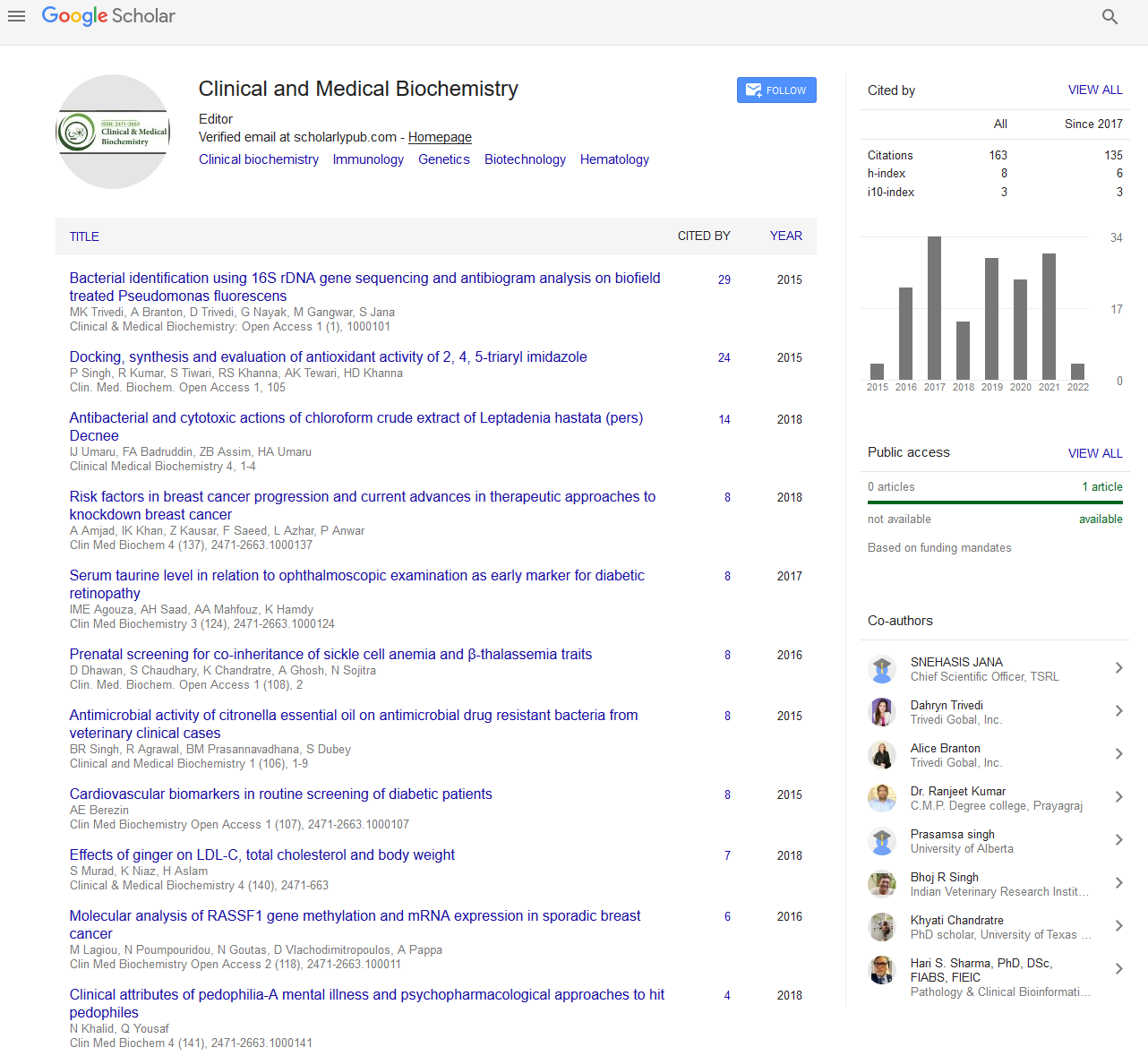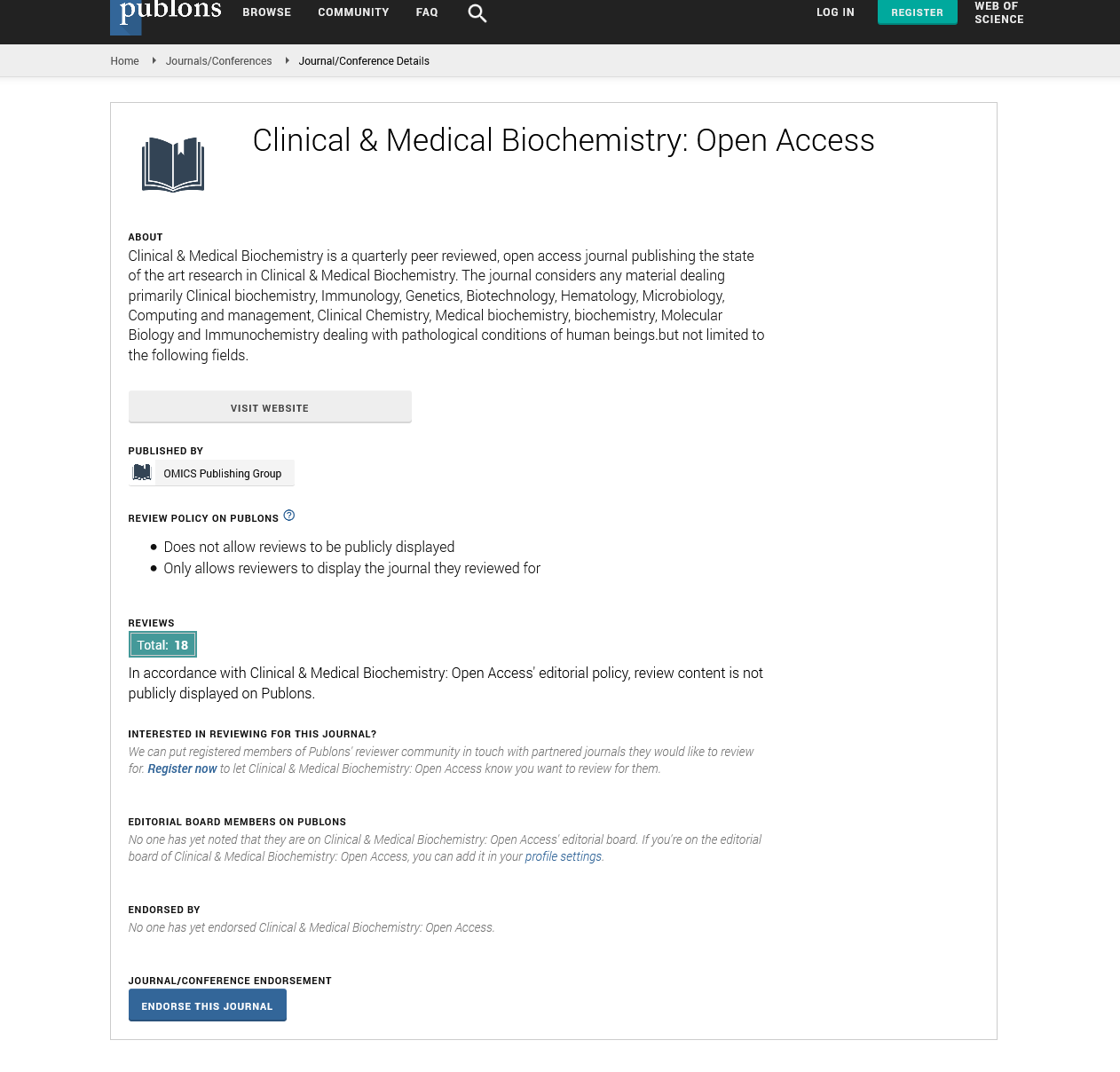Indexed In
- RefSeek
- Directory of Research Journal Indexing (DRJI)
- Hamdard University
- EBSCO A-Z
- OCLC- WorldCat
- Scholarsteer
- Publons
- Euro Pub
- Google Scholar
Useful Links
Share This Page
Journal Flyer

Open Access Journals
- Agri and Aquaculture
- Biochemistry
- Bioinformatics & Systems Biology
- Business & Management
- Chemistry
- Clinical Sciences
- Engineering
- Food & Nutrition
- General Science
- Genetics & Molecular Biology
- Immunology & Microbiology
- Medical Sciences
- Neuroscience & Psychology
- Nursing & Health Care
- Pharmaceutical Sciences
Abstract
Genotypic Variations may Elucidate Resistance to Plasmodium falciparum Infection In Vitro
Sanusi Babangida, Aimola Idowu, Aliyu Muhammad, Auwal Garba, Bashir Yusuf Malik, Suraj Muhammad Abba, Abdussalam Abdul -Aziz, John Adejor and Oniovokukor O Kite
Plasmodium falciparum malaria remains a significant cause of human suffering, and most malaria-related morbidity and mortality occurs in children living in sub-Sahara Africa. Evolutionary pressure has explained that various erythrocyte polymorphisms could protect against severe complications and death from Plasmodium falciparum malaria. Several mechanisms have been proposed to explain the protection of hemoglobin AS and SS from severe Plasmodium falciparum malaria. Sickle trait; the heterozygous and homozygous state of normal hemoglobin A (HbA) could confer protection against malaria in Africa. In the present study, we cultured Plasmodium falciparum infected red blood cells from AA, AS and SS for six days. During the six days period, the level of parasite load (Parasitemia) and the activity of arginase released by the parasite were monitored on daily basis. Result obtained shows a significant (P


